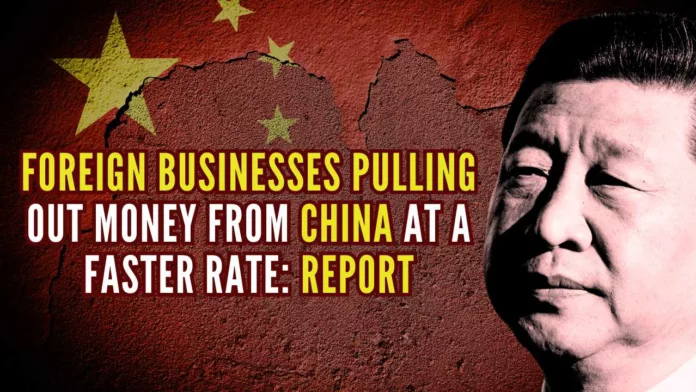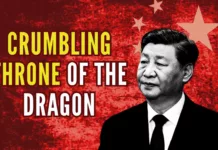
China suffers plunging foreign direct investment amid geopolitical tensions
Foreign businesses have been pulling money out of China faster than they have been putting it in, a media report said on Tuesday citing official data. Businesses appear to be already erring on the side of caution.
The country’s slowing economy, low interest rates, and a geopolitical tussle with the US have sparked doubt about its economic potential, says the BBC report.
All eyes will be on a crucial meeting between Chinese and US President Xi Jinping and Joe Biden this week.
“Anxieties around geopolitical risk, domestic policy uncertainty, and slower growth are pushing companies to think about alternative markets,” says Nick Marro from the Economist Intelligence Unit (EIU).
China recorded a deficit of $11.8bn (£9.6bn) in foreign investment in the three months to the end of September – the first time since records began in 1998, the BBC reported.
This suggests that foreign companies are not reinvesting their profits in China, rather they are moving the money out of the country.
“China is currently facing slower growth and needs to make some corrections,” says a spokesperson for the Swiss industrial machinery manufacturer Oerlikon, which pulled $277 million from the Asia giant last year.
“In 2022, we were one of the first companies to transparently communicate that we expect the economic slowdown in China to impact our business,” the spokesperson adds.
“Consequently, we began early to implement actions and measures to mitigate these effects.”
China remains a key market for the firm. It has close to 2,000 employees across the country, which accounts for more than a third of its sales.
Oerlikon noted that the Chinese economy was still expected to post growth of around 5 percent in the next few years, “which is among the highest in the world”, BBC reported.
Since the onset of the COVID-19 pandemic, businesses like Oerlikon have contended with the challenges of operating in what is the world’s biggest market.
China had implemented one of the world’s strictest pandemic lockdowns through its “zero-Covid” policy.
This caused disruptions to the supply chains of many companies, such as technology giant Apple, which makes most of its iPhones in China.
The firm has since diversified its supply chain by moving some production to India.
[With Inputs from IANS]
For all the latest updates, download PGurus App.










